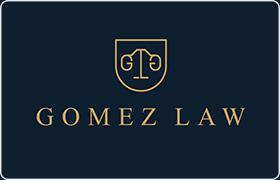Newport Coast Construction Lawyer, California
Sponsored Law Firm
-
 x
x

Click For More Info:
-
Gomez Law, APC
3250 Wilshire Blvd Suite 1901 Los Angeles, CA 90010» view mapReal Estate Dedication. Compassion. Trust.
Whether you are looking to purchase a house or commercial property or in the process of probate, we are here to provide the legal support you need to help you move forward.
800-901-4291
Includes: Construction Contracts, Construction Liens, Housing & Construction Defects
Melinda Marie Luthin
Estate Planning, Construction, Dispute Resolution, Contract, Elder Law
Status: In Good Standing Licensed: 17 Years
Ethan A. Reimers
Business, Litigation, Construction, Insurance, Products Liability
Status: In Good Standing Licensed: 8 Years
Joseph Michael Hanna
Construction, Litigation, Corporate, Credit & Debt
Status: Inactive Licensed: 47 Years
Susan D Garbutt
Construction, Public Finance, Contract, Bankruptcy
Status: In Good Standing Licensed: 36 Years
Susan Denise Garbutt
Construction, Public Finance, Contract, Bankruptcy
Status: In Good Standing Licensed: 36 Years
Scott Harold Gelfer
Construction, Real Estate, Government, Civil & Human Rights
Status: In Good Standing Licensed: 39 Years
Daniel J Bulfer
Construction, Class Action, Employee Rights, Constitutional Law
Status: In Good Standing Licensed: 13 Years
 Mark Gomez Los Angeles, CA
Mark Gomez Los Angeles, CA Practice AreasExpertise
Practice AreasExpertise
